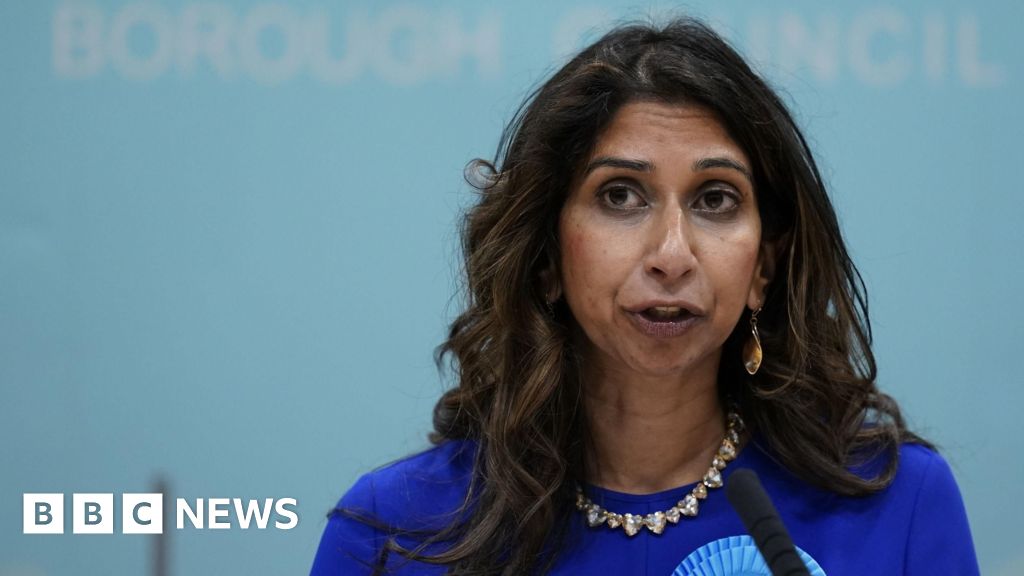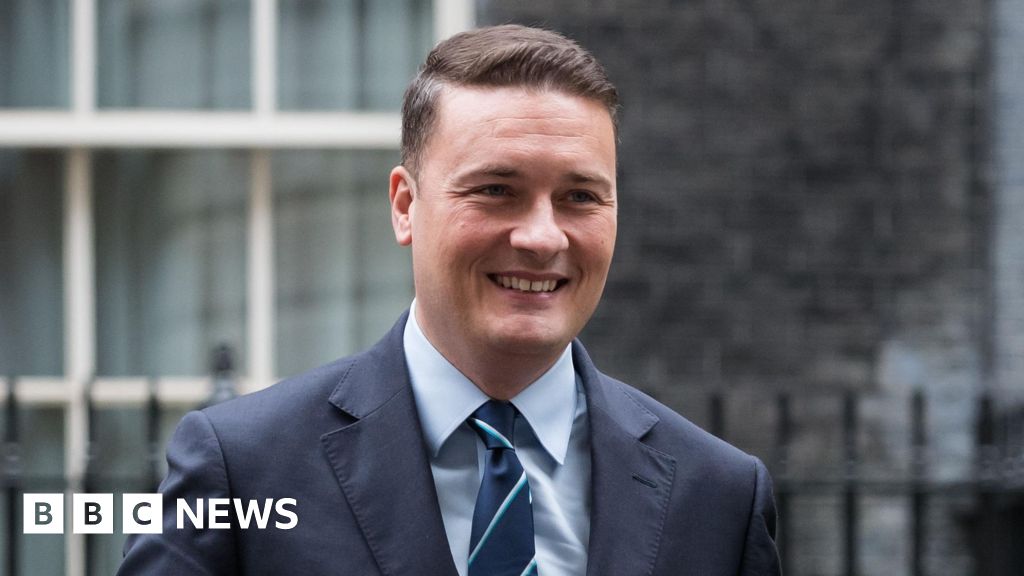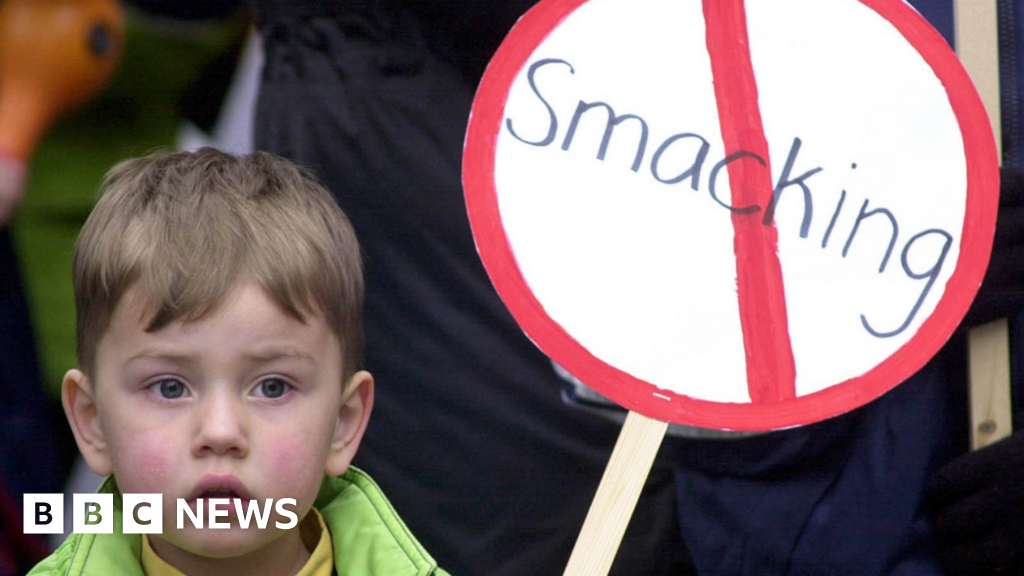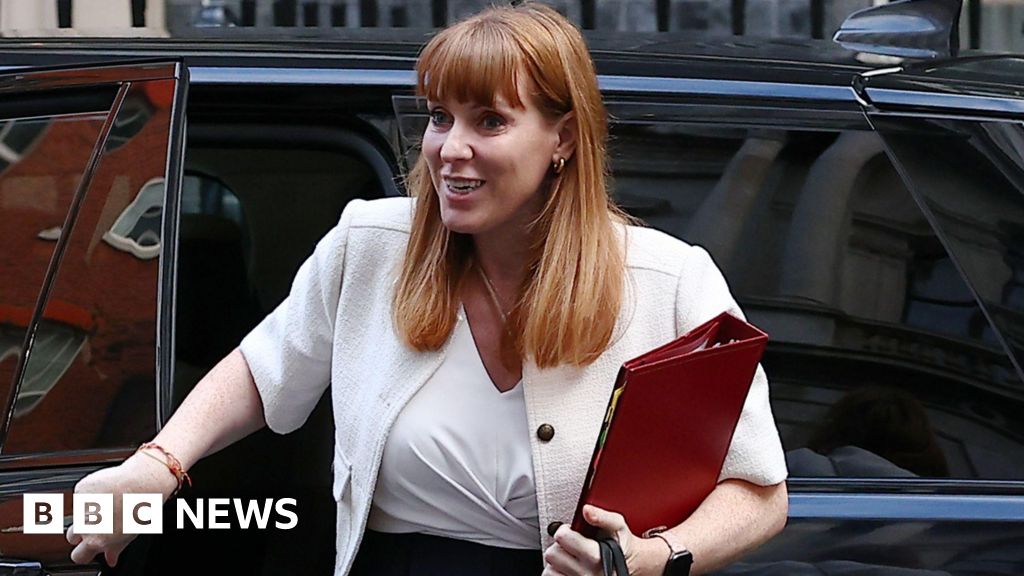Politics
Should MPs legalise assisted dying? Our panel responds | Rachel Clarke, Lucy Webster, Gaby Hinsliff, Maureen Anderson, Charlie Corke and Nims Obunge

Rachel Clarke: If we truly cared about those dying, palliative care would be properly funded

Christiaan Barnard, the surgeon who performed the world’s first heart transplant, vividly skewered the notion of patients “freely” choosing to have such dangerous, experimental surgery. They were, he wrote, like someone chased by a lion to the bank of a river filled with crocodiles, who decides to hurl themselves into the water: “For a dying man, it is not a difficult decision because he knows he is at the end … But you would never accept the odds if there were no lion.” Barnard captures a fundamental flaw in libertarianism that is horribly pertinent, whether we like it or not, to Kim Leadbeater’s choice at the end of life bill. The freedom to choose, so superficially seductive, can disguise all manner of coercion.
Proponents of assisted dying love to ridicule this concern as centring on a few “greedy relatives wanting to bump off Granny”. But it’s not. It’s something far uglier and more pervasive that involves you, me, every one of us. It’s that in Britain, in 2024, we permit such wretched underfunding of palliative care, social care and healthcare in general that people with terminal illnesses can be left to rot behind closed doors – out of sight, out of mind – by a society that claims to care.
The brutal truth is that only a tiny proportion of hospice and palliative care is NHS funded, the rest – unforgivably – relying on charity cake sales and sponsored marathons. So much for “from cradle to grave”. Rather than truly caring about dying people, then, we allow some of them to suffer avoidable pain, avoidable indignity, that could be averted by investment in threadbare services.
Economically speaking, assisting someone to die is, of course, far cheaper than ensuring they have the care to make their life worth living. So, sure, we can all nod at those glib assurances that a new law will rigorously safeguard patients from being driven into ending their life prematurely. But given what we already permit? Those “safeguards” are a comforting, yet deeply dishonest, delusion.
As Barnard implied, we must make sure that these patients faced with so few choices still have as many as we can give them – which means the best palliative and social care possible.
Lucy Webster: The state cannot be trusted with the power to take a disabled person’s life

I’ll be the first to hold my hands up and admit: I used to be in favour of assisted dying. Nondisabled people are able to end their lives, so it seemed only fair that disabled people should have that option too.
Then Covid happened and I promptly changed my mind. Governments everywhere, including in the UK, made decision after decision about whose lives were worth saving and whose weren’t. Media commentators openly questioned why lockdowns were needed to protect the “already vulnerable”. And, most horrifyingly, where assisted dying is concerned, reports proliferated of doctors and other healthcare professionals imposing “do not resuscitate” orders on some disabled people without their or their families’ consent. It was clear to me that neither the state nor society at large can be trusted with any additional powers to take disabled people’s lives.
It’s not just what happened during Covid that changed my mind. Proponents of the choice at the end of life bill argue that it is tightly drawn and only those with six months or less to live will be allowed to die – if they freely choose to. But evidence from Canada shows that narrow rules can be loosened over time. Then there is the issue of whether a disabled person can ever be said to be making a free choice to die when decent health and social care is so hard to come by. No safeguards can possibly protect against the feeling of being a burden on family, or the anguish of living in a society that is so hostile to disabled people.
MPs backing the bill say they want to ease suffering at the end of life. But where are the laws to improve access to palliative care or increase support for unpaid carers? Without these, introducing the assisted dying bill during an acute care crisis just feels like another way for the state to say our lives are worth less than others.
Gaby Hinsliff: I want people to have a dignified death, but I’m not sure this is the safe way to do it

Of course I want the right to die, at a time of my choosing. Who doesn’t seek autonomy over their own body, their most intimate destiny? I want it like I want the vote, legal abortion, no to mean no; and, obviously, I want choice for those suffering horribly dragged-out ends. What troubles me is what my individual freedom to die means for others – especially the vulnerable and powerless, for whom “choice” in political contexts can prove illusory.
I worry less about relatives bumping off Granny than grannies concluding they’re more use dead than alive to struggling children, or domineering, abusive partners losing patience with nursing a spouse. But mostly I worry about mean-spirited future governments, balking at the cost of an ageing population, nudging us towards a choice that’s barely a choice at all between a threadbare NHS and a swift, cheap exit.
Already hospices rely on running charity shops for their funding: as the palliative care team explained when my father was dying, in his area that means only 15 hospice beds per 101,000-odd residents, so you can say you want one but nothing is guaranteed. It reminded me of the birth plans pregnant women painstakingly complete, an illusion of choice sometimes shattered by actually giving birth. My father’s care at home was superb, but sadly that isn’t universal. So choice must begin with properly funded, specialist palliative care and pain management that doesn’t actively frighten people off to Dignitas.
Under Kim Leadbeater’s thoughtful proposals, the right to die applies once doctors think you have less than six months to live, which sounds clear cut if, like me, you had always imagined terminal illness to reach a definitive “sorry, but there’s nothing more we can do” point. But so often it’s blurrier: a process of difficult choices – do you want this treatment that may buy more time, but with a rotten quality of life? – and confusion about whose advice to trust, which feels too delicate for any suspicion of added pressure. In some ways, I envy people who can back this bill: I want what they want. I’m just not sure it’s safe.
Maureen Anderson: My Christian parents would not agree with me, but I want the right to choose

This bill will be very divisive if it becomes law – particularly in communities where faith and religion are central to the culture.
My parents were Christians from the Caribbean, and their faith meant as much to them as their family. They died in 2020 within one month of each other, each with their quality of life much reduced before their death. Yet I know the assisted dying bill would not have been entertained by either of them.
My father was confined to his bed, partially sighted, hearing impaired (unless it was something he wanted to hear), eager for “his number to be called”, knowing that the only way to meet his Father in Heaven was through death – yet I know he would not have wanted the process to be hastened.
My mother, even with her dignity taken from her in the residential home and in hospital, and despite her being unable to speak at the end of her life, I can say without a doubt would have felt the same.
But the next generation may feel differently – just as cremations were historically not common in British Caribbean communities, but that is starting to change.
Of course, the safeguards will be crucial: having two independent doctors agree, and strict criteria for who is eligible. Also key is making sure everyone has a say in how they are looked after, and that they are afforded a dignified death, whether assisted or not. It’s easy to assume there is a standard of dying in residential and medical facilities, but there is not – Hospice UK and its Dying Matters campaign have done a great job in making the public aware of their options.
But in the end, who best to make the decision to have an assisted and dignified death than the person suffering? I would like to have the option to make that choice. My parents are no longer here to berate or pray for me to change my mind, and I would not want my family to have to be full-time carers. I would have a “going away party”. We should each be able to live our lives well, and die with dignity.
Charlie Corke: I worked on an assisted dying review board in Australia – here’s what I learned

There is overwhelming public support for changing the law in regard to assisted dying in the UK, regardless of voters’ political affiliation. That means that unless politicians go against strong public opinion (which is always possible), the question isn’t whether it will be legalised, but how it should operate.
I live in Victoria, Australia, where voluntary assisted dying has been available for six years, and I have just completed a six-year term as the deputy chair of the state’s voluntary assisted dying review board. This board reviews every application for the service (now more than 3,000), and there has not yet been an occasion where an ineligible patient has been deemed to have gained access. Instead, there have been numerous occasions where the legal hurdles have been shown to have caused unreasonable delay or distress (or both).
The same objections to assisted dying were raised in Australia as in the UK, but as the review board has established, these have not turned out to be problems. However, I am concerned that the UK may be making the same mistakes that have led to these delays in the Victoria service. For example, the proposed UK bill’s requirement for judicial review would constitute a significant barrier – the courts are already overloaded – while being unlikely to make the process safer.
Any legislation should take into account that people will likely postpone applying till late in their terminal disease (accepting we are “at the end” can’t be easy), and it’s natural that doctors may be hesitant to respond to requests until death is imminent. As much as politicians might say that this is a non-urgent, elective service, where timely response is not a consideration, we have found this is not the reality.
It is important to recognise that some who strongly oppose this legalisation may advocate complex impractical safeguards to ensure that, should assisted dying be legislated, it will be so difficult to access it will rarely be used. Applicants are often very close to death and fervently want to control how they will die, so the process has to be swift, efficient and compassionate.
-
Prof Charlie Corke is the former deputy chair of the voluntary assisted dying review board, Victoria, Australia
Nims Obunge: Legalising assisted dying would disrupt the cultural roles of faith and family in end-of-life-care

The debate on assisted dying in the UK must consider all perspectives, especially those of minority ethnic communities, including African, Caribbean and Asian backgrounds. For many of these communities, life is sacred, and taking one’s own life is considered taboo or shameful, regardless of the level of suffering. We believe life is God’s gift, and that the end of life is his decision – not ours. Family structures are built around providing care and support, ensuring loved ones are not left to suffer alone but are surrounded by their community until their natural death. Legalising assisted dying would challenge these deeply held values and disrupt the faith and cultural role of family in providing end-of-life care.
In the UK, systemic inequalities in healthcare, particularly affecting Black and minority ethnic communities, remain a significant issue. These groups often experience poorer access to quality healthcare and are disproportionately affected by poverty. Before legalising assisted dying, the government must address these root causes of suffering. Instead of offering death as a solution, efforts should be made to combat these inequalities and improve access to palliative care, enabling all individuals to live well rather than focus on dying well. Legalising assisted dying without fixing these disparities would only reinforce existing mistrust of public institutions, particularly healthcare, within these communities.
As a society, we struggle with the notion of suffering and often seek to eliminate it. However, when we cannot alleviate suffering, the solution should not be to end the sufferer’s life. We must instead co-suffer with those in pain, advocating for justice and healthcare reforms that ensure quality care for all. Lord Darzi’s review of the NHS and social care system highlighted a system already struggling to meet the needs of the population, especially minority ethnic groups. Further justifying assisted dying would be a disservice to a healthcare system meant to preserve life and possibly increase its failing of an already vulnerable group. We must prioritise improving care, rather than sanctioning premature death.
Politics
Suella Braverman sent government documents to private email 127 times

Suella Braverman forwarded government documents to her private email accounts at least 127 times while she was attorney general in a potential breach of the ministerial code, it has emerged.
The revelation came after a Freedom of Information campaign by the Times newspaper.
The Conservative, who was in the Cabinet role under Boris Johnson, and the Attorney General’s Office (AGO) did not respond to requests for comment.
For security reasons, ministers are banned from sending sensitive emails and documents to their private accounts.
As attorney general, the chief legal adviser to the government, Braverman dealt with highly sensitive matters of state.
But between 2021 and 2022, she forwarded 127 emails to her private accounts, with the emails containing at least 290 documents.
The contents of the emails are not yet publicly known.
The information was revealed after an 18-month transparency battle by the Times and a ruling by a tribunal judge.
The AGO had refused to answer the Times’ Freedom of Information request about Braverman’s emails, saying it would be too costly to search her ministerial inbox.
In a ruling, Judge Simon Heald said “it appears to us that the AGO initially went about finding private email account details in a convoluted way”, which was “not a sensible way to start”.
He said the AGO could, “using the tools available in Outlook, answer the request with relative ease”.
During the period in question, Ms Braverman took the BBC to the High Court in a bid to stop the publication of a story about an abusive MI5 agent.
She was one of those formally investigated by a leak inquiry when secret details of the court case were passed to the Daily Telegraph in January 2022.
She was later appointed home secretary, but had to resign when it emerged she had sent an official document to a parliamentary colleague using her personal email.
She later admitted sending official correspondence to her private email account on six more occasions.
After becoming home secretary once again, she was sacked last year by then Prime Minister Rishi Sunak for comments in a newspaper article accusing the Metropolitan Police of bias in the policing of protests.
She said police applied a “double standard” by being tougher with right-wing demonstrations than pro-Palestinian ones.
Ms Braverman remains an MP and influential figure in sections of the Conservative Party.
Politics
Jokey reform ideas removed from NHS consultation website

Some members of the public have not taken Health Secretary Wes Streeting’s call for new ideas to improve the health service as seriously as he might have hoped.
Suggested ideas for NHS reform included putting beer on tap in hospitals, and placing Arsenal manager Mikel Arteta in charge.
The health department told the BBC officials were reviewing posts, and were removing or hiding material that was “clearly inappropriate or irrelevant”.
Ministers launched an online “national conversation” earlier, to inform a new 10-year plan to improve health services.
In a social media post, Mr Streeting sought to laugh off some of the more irreverent suggestions.
Writing on X, he quipped that a recommendation for a Wetherspoons pub in every hospital had been “sadly vetoed by the chancellor”.
He also rejected a call for him to be fired out of a cannon in a bid to raise funds for the service.
The health department has promised that the listening exercise will “help shape” its new NHS strategy, to be published in spring next year.
But some of the suggestions are less likely to be taken seriously than others.
Ideas that appear to have disappeared from the consultation website include putting lager Madrí on tap in all hospitals to “help patient morale”, and replacing Streeting as health secretary with a dog.
However suggestions to replace ambulance sirens with healthy eating advice, and install Thunderbird 2-style detachable patient compartments in ambulances, appear to still be online.
By late afternoon, the suggestions ranked most popular by users on the site included limits on sending out paper letters, and making it easier for GP surgeries to access digital records from hospitals.
Other highly-ranked ideas include making it easier for non-British nationals to pay for treatment, and fines for missed appointments, an idea suggested and then dropped by former prime minister Rishi Sunak.
The health department has not confirmed which posts it is removing, but a spokesperson said “clearly inappropriate or irrelevant” material was being removed or hidden by the moderation team.
Ideas suggested by ministers at the launch of the consultation include making full medical records, tests results and letters from doctors available in the NHS App.
Currently the NHS App is limited because patients records are held locally by a patient’s GP and any hospitals they visit – and not all parts of the health service interact with the app.
It is not the first time ministers have attempted to engage the public directly in matters of state.
The Conservative-Liberal Democrat coalition asked the public for suggested laws to abolish, and ran a Treasury-led public consultation on ideas to save money.
The most famous example of a listening exercise, however, remains the 2016 poll which saw the public vote to name a new polar research ship “Boaty McBoatface”.
The name, suggested by former BBC Radio Jersey presenter James Hand, achieved viral fame and became the runaway winner in a contest run by the Natural Environment Research Council.
In a blow to online democracy, the ship was later named after broadcaster Sir David Attenborough, although one of its remotely operated sub-sea vehicles was named “Boaty” in recognition of the vote.
Politics
Serious Fraud Office probe £112m Unite union hotel

The Serious Fraud Office is investigating the construction of a hotel and conference centre owned by one of the UK’s biggest trade unions, the BBC can reveal.
Unite the Union spent a total of £112m of its members’ money on the project in Birmingham.
The building has since been valued at just £29m, suggesting £83m has been wasted.
A KC-led inquiry commissioned by Unite’s general secretary Sharon Graham also identified a missing £14m which has been described as a “mystery” and does not feature in the project’s final accounts.
Unite has told the BBC the case is “now with the Serious Fraud Office” and Ms Graham would “leave no stone unturned in finding out if there was any financial wrongdoing”.
A KC-led inquiry commissioned by Ms Graham, who took over as Unite’s general secretary in 2021, also identified a missing £14m which has been described as a “mystery” and does not feature in the project’s final accounts.
An SFO spokesperson said: “In line with long established practice to avoid prejudice to law enforcement activity, we can neither confirm nor deny any investigation into this matter.”
The Birmingham project was intended to be an investment for Unite as well as saving the union money with hotel and conference costs.
Construction was completed in 2020 and development includes a four star 195 bedroom hotel, a 1,000 person capacity conference centre, as well as Unite’s regional offices.
Employment tribunal documents reveal the union believes its ruling executive council had been misled as to the true value of the project.
In 2022 South Wales Police searched the union’s London headquarters as part of a separate bribery, money-laundering and fraud investigation.
The force has told the BBC that the investigation is ongoing.
A Unite spokesperson said: “It is important to note that Sharon Graham has had to endure repeated attacks by those with much to lose since she launched these inquiries, from both inside and outside the union.
“These have been sickening and horrendous but she has remained determined to get to the truth.
“We are also pursuing legal claims to recover money lost to the union and the general secretary has put safeguards in place to ensure that such things can never happen again.”
Politics
English smacking ban being considered by government

Government ministers are considering a smacking ban for England, the Department for Education has confirmed.
Smacking bans have already been brought in by devolved governments in Scotland, Wales and Jersey, outlawing the use of physical violence to punish children.
Plans for similar laws in England were rejected by the previous Conservative government as recently as last year – but Labour ministers are now “looking carefully” at whether more can be done on the issue.
The move comes following fresh calls for a ban by the Children’s Commissioner for England Dame Rachel de Souza, after the death of 10-year-old Sara Sharif.
A court heard Sara was hooded, burned and beaten over a two-year period as her father, stepmother and uncle stand trial for her murder, which they deny.
Dame Rachel said a ban on any type of corporal punishment, including smacking, hitting, slapping, and shaking, could stop lower level violence from escalating.
“If we are serious about keeping every child safe, it’s time England takes this necessary step,” she posted on X.
“Too many children have been harmed or killed at the hands of the people who should love and care for them most.”
In England and Northern Ireland it is legal for a carer or parent to discipline their child physically if it is a “reasonable” punishment – but the Children Act 2004 made it illegal to assault a child causing actual or grievous bodily harm.
Dame Rachel said the experience of Scotland and Wales ” has taught us we need to take that step in England too” and “now is the time to go further”.
The NSPCC and Barnardo’s have long called for an English smacking ban and two-thirds of English people polled by YouGov in March last year said physically disciplining a child is not acceptable.
The previous government argued parents should be trusted to discipline their children.
However, a Department for Education spokesperson told the BBC that stance has changed.
“Any form of violence towards a child is completely unacceptable, and we are looking closely at the legal changes made in Wales and Scotland as we consider whether there is any more we could do in this area,” they said.
“We are already supporting teachers, social workers and all safeguarding professionals to spot the signs of abuse or neglect more quickly, including with our mandatory framework for safeguarding children.”
Politics
Angela Rayner given security council seat after Starmer U-turn

Angela Rayner has been made a full member of the UK’s national security council (NSC), following a U-turn by Sir Keir Starmer.
The deputy prime minister’s name did not appear on a list of ministers attending the committee published by the government last week.
But the document has now been re-published to include her as a member, confirming a move first reported by the Guardian.
The newspaper reported the new No 10 chief of staff, Morgan McSweeney, had pushed for the change in a bid to shore up her position.
Downing Street said she had previously attended NSC meetings, claiming the change merely “formalises” an expectation she would do so regularly.
First established under former prime minister David Cameron, the NSC brings together senior ministers and defence and intelligence chiefs for meetings on security issues. Its members are appointed by the prime minister.
It membership has fluctuated over the years and varies by issue discussed, but has typically included previous deputy prime ministers as standing members.
The only exception was Therese Coffey, who held the post during the 49-day premiership of Liz Truss.
Ms Truss who effectively put an end to the NSC by merging its functions with two other foreign policy committees, before it was later reinstated by Rishi Sunak.
Topics discussed at the NSC include foreign policy, defence, economic security, and resilience to security threats.
Its membership was slimmed down in July 2021under Boris Johnson, in a bid to keep discussions “focused and strategic”.
Alongside Ms Rayner, the committee is will be attended by Chancellor Rachel Reeves, Cabinet Office minister Pat McFadden, Home Secretary Yvette Cooper, Foreign Secretary David Lammy, Defence Secretary John Healey and the Attorney General Lord Hermer, and will be chaired by Sir Keir.
Mr Rayner, who is also the housing secretary, also holds seats on cabinet sub-committees discussing constitutional matters, home and economic affairs, and changes to employment law.
Politics
Fears children at risk due to out-of-town taxi licences

Taxi drivers are buying licences in Wolverhampton to get round tough rules aimed at protecting children, a Labour MP claims.
One-in-five private hire vehicles in England, such as Ubers and minicabs, have obtained licences from Wolverhampton City Council, where they are cheaper and less stringent than in other parts of the country.
Drivers do not have to get licences from their own local authority, under a law introduced in 2015.
Rotherham MP Sarah Champion says this allows drivers in her constituency to bypass tough safeguarding rules introduced after a 2014 child sex abuse scandal.
“The frustration is that in Rotherham we have probably the best regulation in the country and we’re trying to get that adopted nationally,” she told the BBC.
“We needed it because a lot of children who were being exploited were being raped in taxis or being transported from one children’s home to the abuse location through a taxi.
“The problem is those regulations are only set by the licensing authority so unless we get national minimum standards then drivers can go to a different local authority with different regulations and still drive in Rotherham.”
Only 1,781 of the 48,447 drivers currently licensed by Wolverhampton live in the city, with the rest operating as far afield as Newcastle, Somerset, Cardiff and Skegness.
The cost of a one year private hire licence in Rotherham is £210 and applicants must sit a child and vulnerable adults safeguarding test with a 100% pass rate. They also have to fit CCTV cameras to their vehicles, which can cost upwards of £350.
In Wolverhampton, by contrast, a one year licence costs £49.
Wolverhampton City Council insists it takes safeguarding seriously – and applicants receive training in at as part of a one-day course they have to take.
But Rotherham driver Lee Ward, a Unite the Union representative for South Yorkshire, said out-of-town licences were making taxi drivers “very frustrated”.
“Unfortunately a lot of taxi drivers around here were tarred by the same brush as those who were criminals,” he told BBC News.
“These are innocent drivers who were all of a sudden hit by so many extra regulations, training, CCTV.
“They’ve all gone through that – with open arms and a glad heart – just to sit next to a taxi who has a license in another authority 100 miles away, with officers who never come to Rotherham or Sheffield to check their drivers.
“It just makes a mockery of what they are trying to do.”
Wolverhampton City Council has generated millions from issuing licences to taxi drivers around the country but says the money has been ploughed back into reducing fees.
A City of Wolverhampton Council spokeswoman said: “The council would refute any suggestion of prioritising earning money over passenger safety.”
In a recent report, the council said: “As the number of licensees increase, the likelihood of a serious issue taking place.
“There has been serious child sex exploitation scandals revealed in Rotherham and Telford, which involved taxi drivers.
“Licensed vehicles provide a ‘camouflage’ which allows vehicles to traffic vulnerable people, as well as the offer of free trips for grooming. It is the service’s goal to minimise risks by all legal means.”
Earlier this year, Louise Haigh – who is now transport secretary but at the time was in opposition – raised the issue of child safeguarding in a debate on taxi licensing, saying she had worked alongside victims and survivors of child sexual abuse in Rotherham.
She said: “Following the scandal, Rotherham council set very high standards for its taxi drivers, including installing CCTV in cabs and requiring national vocational qualification level 3 on child safeguarding.”
She called on then Conservative government to bring in “robust legislation” and national minimum standards to protect women and girls.
Sarah Champion has written to Haigh asking for new laws to ensure taxis must be licensed “in the local authority area in which they routinely operate”.
A Department for Transport spokesperson said: “Everyone deserves to feel safe when using a taxi or private hire vehicle and we’re aware of concerns around licensing.
“There are safeguarding procedures in place and all drivers must undergo enhanced DBS checks, but we are carefully considering the options available to improve safety and accessibility in the sector.”
MPs are due to debate the issue later on Monday.
-

 Science & Environment1 month ago
Science & Environment1 month agoHyperelastic gel is one of the stretchiest materials known to science
-

 Technology4 weeks ago
Technology4 weeks agoIs sharing your smartphone PIN part of a healthy relationship?
-

 Science & Environment1 month ago
Science & Environment1 month ago‘Running of the bulls’ festival crowds move like charged particles
-

 Science & Environment1 month ago
Science & Environment1 month agoHow to unsnarl a tangle of threads, according to physics
-

 Science & Environment1 month ago
Science & Environment1 month agoMaxwell’s demon charges quantum batteries inside of a quantum computer
-

 Technology1 month ago
Technology1 month agoWould-be reality TV contestants ‘not looking real’
-

 Science & Environment4 weeks ago
Science & Environment4 weeks agoX-rays reveal half-billion-year-old insect ancestor
-

 Science & Environment1 month ago
Science & Environment1 month agoSunlight-trapping device can generate temperatures over 1000°C
-

 Science & Environment1 month ago
Science & Environment1 month agoLiquid crystals could improve quantum communication devices
-

 Science & Environment1 month ago
Science & Environment1 month agoQuantum ‘supersolid’ matter stirred using magnets
-

 Womens Workouts4 weeks ago
Womens Workouts4 weeks ago3 Day Full Body Women’s Dumbbell Only Workout
-

 Technology3 weeks ago
Technology3 weeks agoUkraine is using AI to manage the removal of Russian landmines
-

 TV3 weeks ago
TV3 weeks agoসারাদেশে দিনব্যাপী বৃষ্টির পূর্বাভাস; সমুদ্রবন্দরে ৩ নম্বর সংকেত | Weather Today | Jamuna TV
-

 Science & Environment1 month ago
Science & Environment1 month agoWhy this is a golden age for life to thrive across the universe
-

 Science & Environment1 month ago
Science & Environment1 month agoLaser helps turn an electron into a coil of mass and charge
-

 Science & Environment1 month ago
Science & Environment1 month agoA new kind of experiment at the Large Hadron Collider could unravel quantum reality
-

 Science & Environment1 month ago
Science & Environment1 month agoQuantum forces used to automatically assemble tiny device
-

 Science & Environment1 month ago
Science & Environment1 month agoNerve fibres in the brain could generate quantum entanglement
-

 Science & Environment1 month ago
Science & Environment1 month agoHow to wrap your mind around the real multiverse
-

 Science & Environment1 month ago
Science & Environment1 month agoA slight curve helps rocks make the biggest splash
-
Business3 weeks ago
DoJ accuses Donald Trump of ‘private criminal effort’ to overturn 2020 election
-

 News3 weeks ago
News3 weeks agoMassive blasts in Beirut after renewed Israeli air strikes
-

 MMA3 weeks ago
MMA3 weeks agoJulianna Peña trashes Raquel Pennington’s behavior as champ
-

 Business2 weeks ago
Business2 weeks agoWhen to tip and when not to tip
-

 News2 weeks ago
News2 weeks agoNavigating the News Void: Opportunities for Revitalization
-

 Science & Environment1 month ago
Science & Environment1 month agoITER: Is the world’s biggest fusion experiment dead after new delay to 2035?
-

 News1 month ago
News1 month ago▶️ Hamas in the West Bank: Rising Support and Deadly Attacks You Might Not Know About
-
News1 month ago
the pick of new debut fiction
-

 Science & Environment1 month ago
Science & Environment1 month agoNuclear fusion experiment overcomes two key operating hurdles
-

 News4 weeks ago
News4 weeks agoOur millionaire neighbour blocks us from using public footpath & screams at us in street.. it’s like living in a WARZONE – WordupNews
-

 Football3 weeks ago
Football3 weeks agoRangers & Celtic ready for first SWPL derby showdown
-

 Technology3 weeks ago
Technology3 weeks agoMicrophone made of atom-thick graphene could be used in smartphones
-

 Technology3 weeks ago
Technology3 weeks agoSamsung Passkeys will work with Samsung’s smart home devices
-

 News2 weeks ago
News2 weeks ago▶ Hamas Spent $1B on Tunnels Instead of Investing in a Future for Gaza’s People
-

 Science & Environment1 month ago
Science & Environment1 month agoTime travel sci-fi novel is a rip-roaringly good thought experiment
-

 News1 month ago
News1 month ago▶️ Media Bias: How They Spin Attack on Hezbollah and Ignore the Reality
-

 Science & Environment1 month ago
Science & Environment1 month agoPhysicists have worked out how to melt any material
-

 Technology4 weeks ago
Technology4 weeks agoWhy Machines Learn: A clever primer makes sense of what makes AI possible
-

 MMA3 weeks ago
MMA3 weeks agoPereira vs. Rountree prediction: Champ chases legend status
-

 Sport3 weeks ago
Sport3 weeks agoBoxing: World champion Nick Ball set for Liverpool homecoming against Ronny Rios
-

 MMA2 weeks ago
MMA2 weeks ago‘Uncrowned queen’ Kayla Harrison tastes blood, wants UFC title run
-

 Sport2 weeks ago
Sport2 weeks agoWales fall to second loss of WXV against Italy
-

 Sport3 weeks ago
Sport3 weeks agoWorld’s sexiest referee Claudia Romani shows off incredible figure in animal print bikini on South Beach
-

 Technology3 weeks ago
Technology3 weeks agoThis AI video generator can melt, crush, blow up, or turn anything into cake
-

 TV2 weeks ago
TV2 weeks agoLove Island star sparks feud rumours as one Islander is missing from glam girls’ night
-

 Sport2 weeks ago
Sport2 weeks agoCoco Gauff stages superb comeback to reach China Open final
-

 Technology1 month ago
Technology1 month agoMeta has a major opportunity to win the AI hardware race
-

 Sport3 weeks ago
Sport3 weeks agoSturm Graz: How Austrians ended Red Bull’s title dominance
-

 News2 weeks ago
News2 weeks agoFamily plans to honor hurricane victim using logs from fallen tree that killed him
-

 MMA3 weeks ago
MMA3 weeks agoDana White’s Contender Series 74 recap, analysis, winner grades
-

 Technology3 weeks ago
Technology3 weeks agoMusk faces SEC questions over X takeover
-

 News3 weeks ago
News3 weeks agoHeartbreaking end to search as body of influencer, 27, found after yacht party shipwreck on ‘Devil’s Throat’ coastline
-

 Technology3 weeks ago
Technology3 weeks agoTexas is suing TikTok for allegedly violating its new child privacy law
-

 Money2 weeks ago
Money2 weeks agoWetherspoons issues update on closures – see the full list of five still at risk and 26 gone for good
-

 MMA2 weeks ago
MMA2 weeks agoPereira vs. Rountree preview show live stream
-

 News2 weeks ago
News2 weeks agoHeavy strikes shake Beirut as Israel expands Lebanon campaign
-

 Sport2 weeks ago
Sport2 weeks agoMan City ask for Premier League season to be DELAYED as Pep Guardiola escalates fixture pile-up row
-

 Science & Environment1 month ago
Science & Environment1 month agoPhysicists are grappling with their own reproducibility crisis
-
Business3 weeks ago
Bank of England warns of ‘future stress’ from hedge fund bets against US Treasuries
-

 Business3 weeks ago
Business3 weeks agoChancellor Rachel Reeves says she needs to raise £20bn. How might she do it?
-

 TV3 weeks ago
TV3 weeks agoPhillip Schofield accidentally sets his camp on FIRE after using emergency radio to Channel 5 crew
-
Business3 weeks ago
Sterling slides after Bailey says BoE could be ‘a bit more aggressive’ on rates
-

 News3 weeks ago
News3 weeks agoGerman Car Company Declares Bankruptcy – 200 Employees Lose Their Jobs
-

 News3 weeks ago
News3 weeks ago‘Blacks for Trump’ and Pennsylvania progressives play for undecided voters
-

 MMA3 weeks ago
MMA3 weeks agoAlex Pereira faces ‘trap game’ vs. Khalil Rountree
-

 TV3 weeks ago
TV3 weeks agoMaayavi (මායාවී) | Episode 23 | 02nd October 2024 | Sirasa TV
-

 Technology3 weeks ago
Technology3 weeks agoPopular financial newsletter claims Roblox enables child sexual abuse
-

 Technology2 weeks ago
Technology2 weeks agoA very underrated horror movie sequel is streaming on Max
-
Business3 weeks ago
Eurosceptic Andrej Babiš eyes return to power in Czech Republic
-

 News1 month ago
News1 month agoYou’re a Hypocrite, And So Am I
-

 Sport1 month ago
Sport1 month agoJoshua vs Dubois: Chris Eubank Jr says ‘AJ’ could beat Tyson Fury and any other heavyweight in the world
-

 Science & Environment1 month ago
Science & Environment1 month agoRethinking space and time could let us do away with dark matter
-

 Science & Environment1 month ago
Science & Environment1 month agoA tale of two mysteries: ghostly neutrinos and the proton decay puzzle
-

 Technology3 weeks ago
Technology3 weeks agoArtificial flavours released by cooking aim to improve lab-grown meat
-

 Technology3 weeks ago
Technology3 weeks agoAmazon’s Ring just doubled the price of its alarm monitoring service for grandfathered customers
-

 News2 weeks ago
News2 weeks agoHull KR 10-8 Warrington Wolves – Robins reach first Super League Grand Final
-

 MMA2 weeks ago
MMA2 weeks agoUFC 307 preview show: Will Alex Pereira’s wild ride continue, or does Khalil Rountree shock the world?
-

 Money2 weeks ago
Money2 weeks agoWhy thousands of pensioners WON’T see State Pension rise by full £460 next year
-

 Technology2 weeks ago
Technology2 weeks agoHow to disable Google Assistant on your Pixel Watch 3
-

 Technology2 weeks ago
Technology2 weeks agoThe best budget robot vacuums for 2024
-

 News2 weeks ago
News2 weeks agoBalancing India and China Is the Challenge for Sri Lanka’s Dissanayake
-

 Technology2 weeks ago
Technology2 weeks agoThe best shows on Max (formerly HBO Max) right now
-

 Technology2 weeks ago
Technology2 weeks agoIf you’ve ever considered smart glasses, this Amazon deal is for you
-

 Technology3 weeks ago
Technology3 weeks agoEpic Games CEO Tim Sweeney renews blast at ‘gatekeeper’ platform owners
-

 Football3 weeks ago
Football3 weeks agoSimo Valakari: New St Johnstone boss says Scotland special in his heart
-

 Technology3 weeks ago
Technology3 weeks agoJ.B. Hunt and UP.Labs launch venture lab to build logistics startups
-

 News3 weeks ago
News3 weeks agoWoman who died of cancer ‘was misdiagnosed on phone call with GP’
-
Business3 weeks ago
CEOs turn to podcasts to control their message
-

 News3 weeks ago
News3 weeks agoHungry customer left gobsmacked as two blokes riding giant HORSES stroll into local chip shop
-

 MMA3 weeks ago
MMA3 weeks agoKayla Harrison gets involved in nasty war of words with Julianna Pena and Ketlen Vieira
-

 Technology3 weeks ago
Technology3 weeks agoApple iPhone 16 Plus vs Samsung Galaxy S24+
-

 Technology3 weeks ago
Technology3 weeks agoUlefone Armor Pad 4 Ultra is now available, at a discount
-

 News3 weeks ago
News3 weeks agoReach CEO Jim Mullen: If government advertises with us, we’ll employ more reporters
-
Politics3 weeks ago
Rosie Duffield’s savage departure raises difficult questions for Keir Starmer. He’d be foolish to ignore them | Gaby Hinsliff
-

 Health & fitness1 month ago
Health & fitness1 month agoThe secret to a six pack – and how to keep your washboard abs in 2022
-

 Science & Environment1 month ago
Science & Environment1 month agoCaroline Ellison aims to duck prison sentence for role in FTX collapse
-
News1 month ago
The Project Censored Newsletter – May 2024
-

 Technology3 weeks ago
Technology3 weeks agoQuantum computers may work better when they ignore causality
-

 Technology3 weeks ago
Technology3 weeks agoUniversity examiners fail to spot ChatGPT answers in real-world test
-

 News1 month ago
News1 month agoNew investigation ordered into ‘doorstep murder’ of Alistair Wilson

You must be logged in to post a comment Login